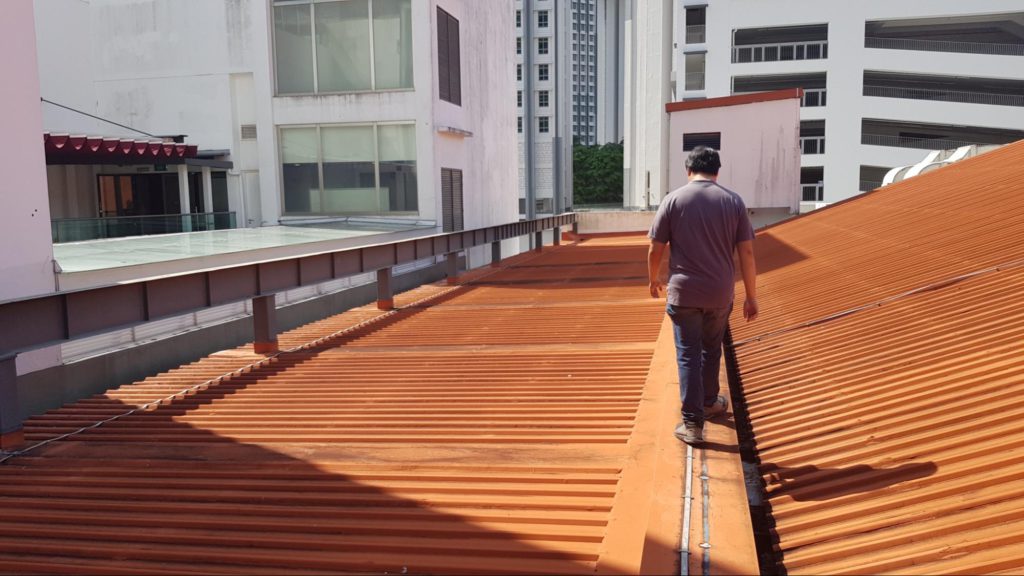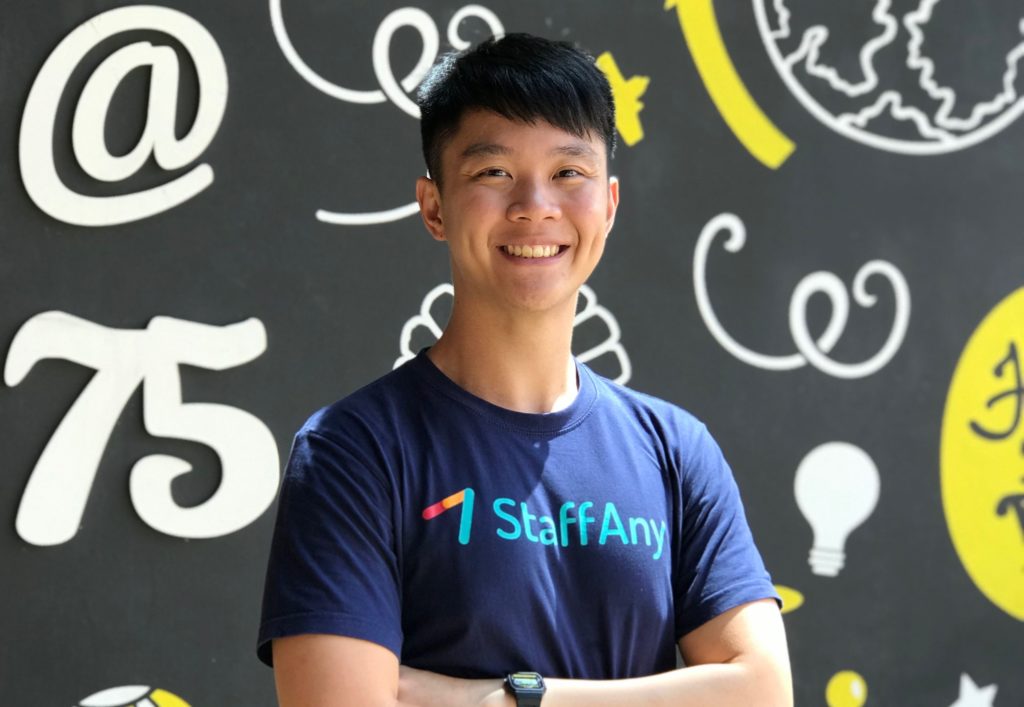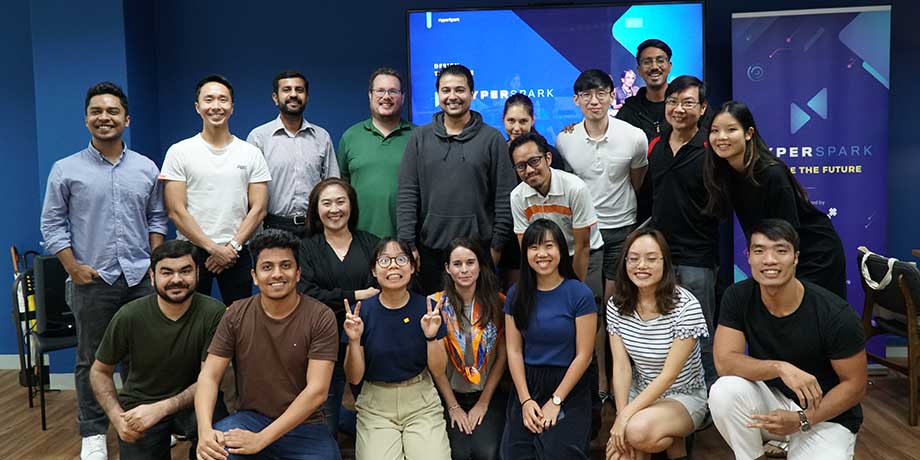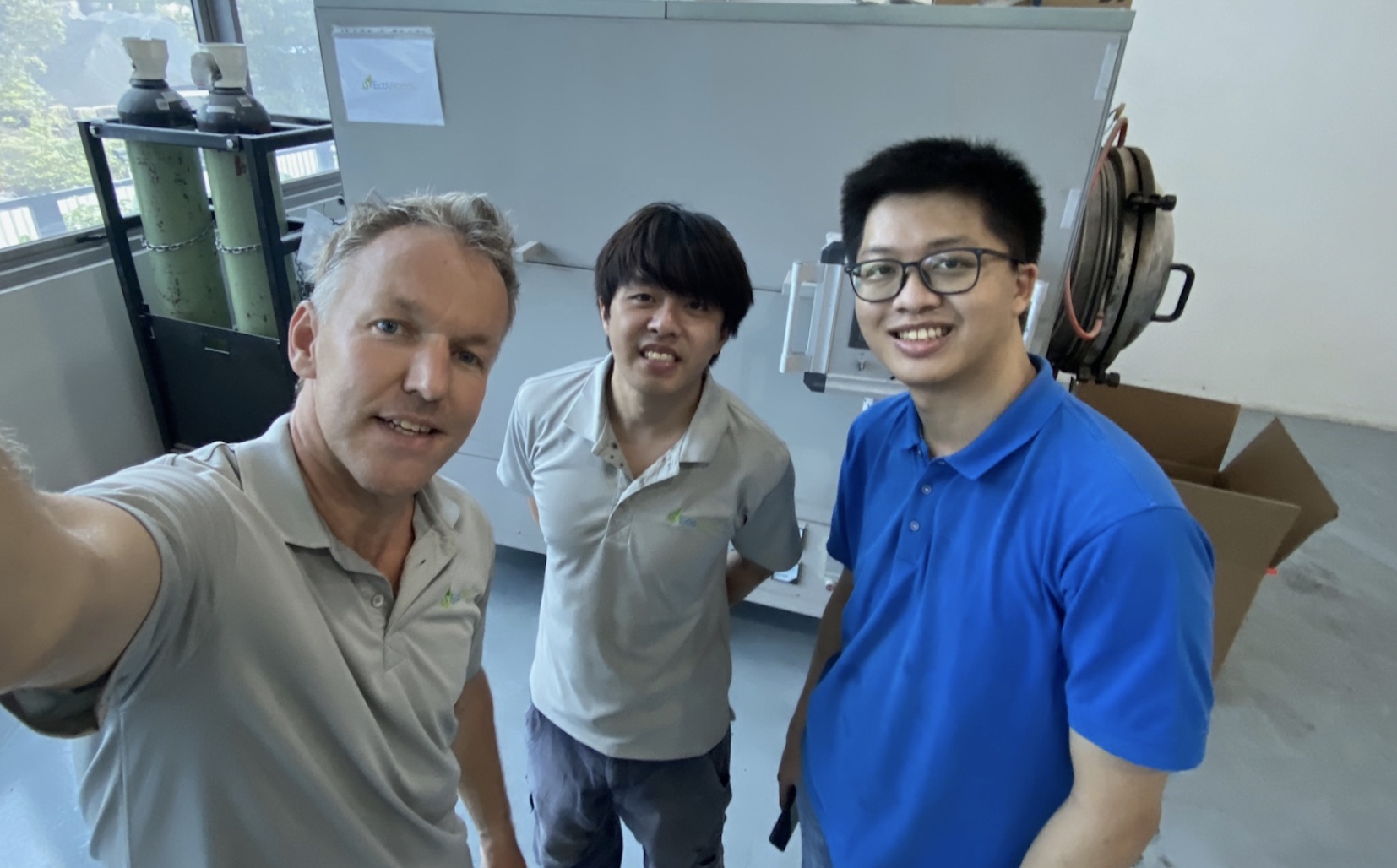Solar AI is a software company that exists to drive solar adoption by connecting property owners and energy companies. While working across different ventures and problem statements to reduce carbon emissions, Bolong quickly grew attached to the idea of utilising technology in the solar industry and went on to found Solar AI.
Personally, climate change is something that I care quite a lot about. When you start to look at the numbers behind climate change, you realise that we’re really running out of time.
Bolong explained as he pointed to the goals set at the Paris Agreement on climate change in 2015, specifically citing the target of staying within a 1.5 to 2 degrees warming target or below 450 carbon dioxide parts per million (ppm), a metric scientists use to determine the amount of carbon dioxide in the atmosphere. Given our astronomical rise in carbon footprint over recent years that adds 2.5-3 ppm annually, the global 450ppm carbon threshold is only getting closer with each passing year.

Source: NASA Climate Change
Bolong further states that there could be dire consequences should we cross our carbon dioxide threshold of 450 ppm. Since the Earth does not warm uniformly, a 1.5 to 2 degrees warming in the North can mean a 10 degrees or more increase in other parts of the world, acutely impacting those in the lower echelons of society or developing countries where there is no geographical mobility, on top of already adverse climate impacts like rising sea levels, drought, floods and more.
This raises the question of climate change as a social issue — something Bolong could connect with having volunteered at a non-profit organisation aimed at alleviating the plight of the old and needy in Singapore. His volunteering experience shed light on the inequalities present in society and with the advent of climate change, Bolong realised that the needy are only going to be at a greater disadvantage.
In the last five years, (poverty as a social cause) was the main thing I really cared about until I started looking at the science behind climate change. I also started to realise (poverty and climate change) are very closely tied together. The impacts of climate change is something which most adversely affects the poorest people in the world. And at the same time, I think climate change is something which is not as much talked about at this point.
Motivations for starting a business
During his time as an EiR at ENGIE Factory, Bolong’s role was to help develop projects to facilitate the move towards a zero-carbon economy, before looking for potential founders to take over said projects. However, a particular project on the distribution of solar captured his interest.
While the levelized cost (i.e. how much it costs to generate an extra output of electricity across an entire value chain) of solar has fallen over the 90% in the last 10 years, Singapore rooftops are still not well equipped to harness its full potential. This could primarily stem from the inefficient methods used by energy companies to scout for new installation sites and Bolong was tasked to resolve this.

Source: Solar AI

Source: LAZARD
Bolong started brainstorming from the perspective of utilising data analytics to facilitate solar distribution, particularly geospatial data to help expedite the scouting process for energy companies. Concurrently, he also realised the lack of awareness and challenges from operational deployment could deter property owners from even considering solar installations.
With the goal to fight climate change and an innate desire to run a business particularly in a sector or cause he believed in, Bolong grew increasingly invested in the project. Seeing the gap between energy companies and property owners in the solar industry, he took a leap of faith and founded Solar AI.
Probably after working on this for about three months or so, I eventually felt like this is a real problem. And it’s also something that I’m increasingly invested in. At one point in time I felt that this feels a little bit too much like my baby to let it go to someone else. So about three months in I actually told the team (at ENGIE factory) that this is really growing on me and I want to work full time on it.
Solar AI’s way of using tech to fight climate change
Today, Solar AI acts as a middleman between property owners and energy companies, bridging the gap between property owners and energy companies with a two-pronged approach. Solar AI makes it seamless and as digital as possible for property owners to get quotes, compare and get the best offers for rooftop solar. Concurrently, Solar AI allows energy companies to easily scout for the most suitable prospects using geospatial data that pre-accesses the feasibility of installing solar across different rooftops and identifies rooftops with the most untapped potential to do solar installations on.
By pre-calculating the solar potential of different rooftops across Singapore and leveraging on their proprietary AI technology, Solar AI is able to build an instant solar assessment tool for property owners to estimate the solar potential of their rooftop, cost of solar installations, financial benefits that come with installing solar, and more.

Source: getsolar.ai
On the end of energy companies, Solar AI set their sights on creating a “Property Guru” equivalent for rooftop solar projects with data they collected from property owners who use their instant solar assessment tool. Instead of driving around industrial estates or scouring Google map’s satellite view trying to identify a feasible solar project, energy companies can now look for the best projects that meet their criteria with the data Solar AI consolidates on this platform, freeing up time for these companies to focus on more value-adding customer services.

Source: getsolar.ai
The dichotomy between mission and profit
When asked about the challenges Solar AI is facing, Bolong, a sole founder, said, “Working on a startup is always a bit like a roller coaster journey. I think as a mission-centred organisation, when we are working on trying to drive solar adoption, one of the challenges is to balance profitability of the company and the mission we’re trying to achieve”. The aged old debate between profit and championing a mission is no stranger to companies trying to make a social impact. In trying to maximise social impact, Solar AI might inevitably minimise profits and vice versa. However, the flip side of the same coin presents another perspective — maximising impact has to be financially sustainable for the business to ensure continuity. In Solar AI’s case, Bolong noted that balancing its business functions as a middleman between energy companies and property owners and scaling solar deployment is something he and the team has to work on.
The singular goal is always to drive solar deployment.
So what’s next? Bolong and Solar AI are not stopping at being merely a middleman. They have ambitious goals to become a regional influence and one of the biggest companies driving solar adoption, especially when it comes to doing so using a business model centred on technology and innovation. The team is committed to building a business they believe will solve problems in the solar industry and can carry the market in the future.








